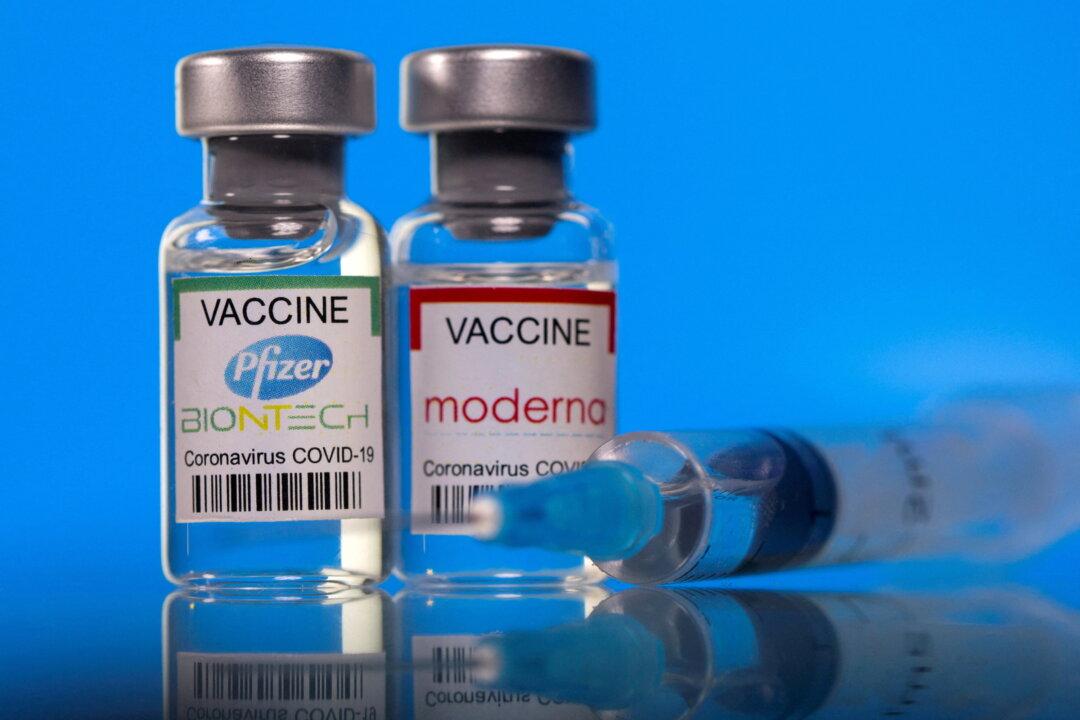A National Institutes of Health (NIH)-sponsored study found that COVID-19 vaccine-induced antibody response to the Omicron subvariants wanes significantly over time.
The immune responses to several Omicron subvariants “waned substantially” among “all groups” of individuals who received either the Pfizer, Moderna, and Johnson & Johnson vaccine as well as a booster dose, or combinations of different vaccines. Neutralizing antibody levels dropped by up to five-fold three months after receiving the booster shot, the NIH said in a news release of the study earlier this week.





